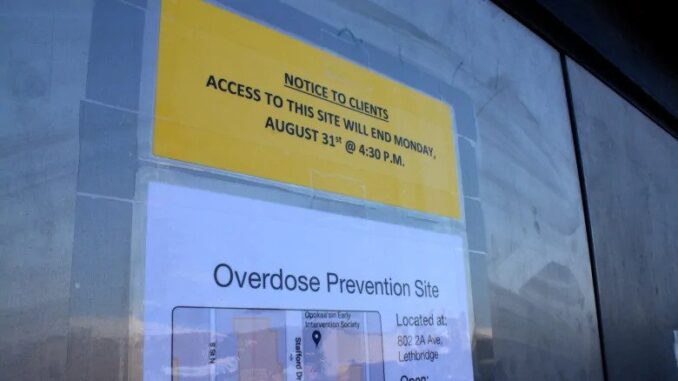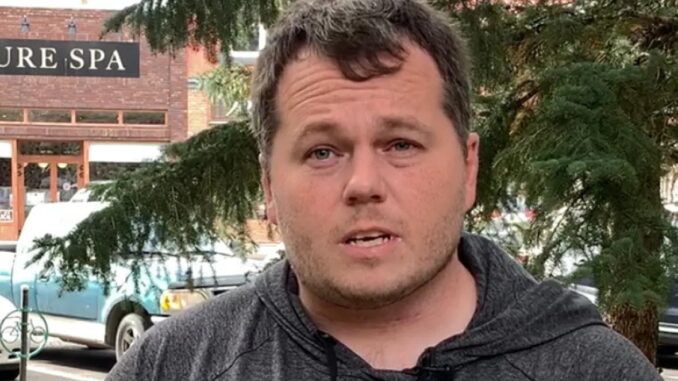
Adam D’Addario, Seneca College
Between January 2016 and March of this year, 30,843 Canadians died from apparent opioid toxicity overdoses. Year after year this number keeps climbing at a more alarming rate. Some provinces have adopted more harm reduction measures including; distributing sterile harm reduction supplies, supervised consumption sites (SCS), giving out naloxone in pharmacies, opioid agonist therapy, and so on. Other provinces have moved slowly to take these measures while others, like British Columbia, continue to scale them up.
Then there’s Alberta. A province that had taken up harm reduction measures but has scaled them back since 2019. Alberta is historically Canada’s most conservative province and has often elected conservative premiers.
However, in 2015 the province elected the Rachel Notley-led NDP party into power. This win for the NDP sent a message to the conservatives in the province that they needed to dissolve their Progressive Conservatives and Wildrose parties and join under one banner.
Thus, the United Conservative Party (UCP) was born. Throughout their four years in power, the NDP scaled up harm reduction measures in the province. However, the NDP faced one major problem. A deficit that was handed down to them by their predecessor. The UCP held a leadership election in which former federal minister of immigration under the Harper government, Jason Kenney, won.
New Party, New Leadership, No Harm Reduction

Kenney ran his campaign against Notley on the premise that the NDP bankrupted Alberta. He ran a campaign on rejecting clean energy and investing more in Alberta’s oil and gas sector. Perhaps most interestingly he singled out the harm reduction sector and took aim at Supervised Consumption Sites in particular. Kenney beat Notley in 2019 and immediately put supervised consumption services under review. The UCP also audited the most accessed SCS in North America called ARCHES located in Lethbridge Alberta.
The audit, conducted by Deloitte, concluded that there was $1.6 million in unaccounted-for funds. The UCP took immediate action and on August 31st, 2020 closed the site. A few months later an investigation by the Lethbridge Police Service concluded and managed to account for the missing $1.6 million dollars in ARCHES’ books. The site still remains closed with no intent of being reopened anytime soon.

In the 2 years since the closure of ARCHES, Lethbridge has seen 134 overdose deaths in a city of just under 93,000. With 20 of those deaths coming in February of this year, that’s the most amount of overdose deaths the city has seen in any month since they began tracking in 2016.
Immediately after the closure of ARCHES some of the former staff and other volunteers organized an Overdose Prevention Site (OPS) and the Lethbridge Overdose Prevention Society or LOPS was born. LOPS operated out of a tent in a park called Galt Gardens in downtown Lethbridge. Immediately after setting up shop, they received backlash from community members and the police.
I first met one of the main organizers, Timothy Slaney, in November 2020 while directing the upcoming documentary "Paper Cuts." This was three months into operation for LOPS and already they were shifting focus from offering OPS services to operating instead as a warming tent for people in the park at night.
I had the opportunity to film with LOPS on November 11, 2020, and ahead of that Slaney told me “listen people are dying. My first priority is to keep these people alive and my second priority is to go through diplomatic channels with the government.”

Lethbridge is not alone when it comes to cuts to harm reduction. Other Albertan cities saw similar cuts since the closure of ARCHES. The government of Alberta attempted to stop running its Injectable Opioid Agonist Therapy (iOAT) program but due to a lawsuit brought forward by patients of iOAT and Edmonton-based lawyer, Avnish Nanda, the program has been allowed to continue but cannot take on new patients.
Beyond that Edmonton saw the closure of one of its SCSs’ which was located at Boyle Street Community Services in downtown Edmonton. There are currently plans to close Calgary’s only SCS and replace it with two sites in different locations from where it currently presides.
"Death by a thousand paper cuts"
So far in 2022 we only have the statistics ranging from January to August. It is important to show this data by zone in Alberta because it illustrates which areas have been hit hardest.
Although it has been two years since the closure of ARCHES the south zone of Alberta remains the hardest hit by overdose deaths per capita. This is incredibly alarming when you factor in that the south zone is also Alberta’s least populated zone. This goes to show the effects of taking away a life-saving service from a community that desperately needs it.
Data is clear that the current way the Alberta government has handled the overdose crisis has led to higher rates of death. With the exception of 2019, which saw a slight decrease, overdose deaths have been on the rise. Over the course of the pandemic, these numbers saw a drastic increase as you can see below.
The current situation in Alberta seems to be everchanging but the data is clear that the further Alberta has drifted from a harm reduction model the more harm is being done to people who use drugs. This is a prominent theme in the feature-length documentary set to release in 2023 in which I have followed the situation closely since late 2020.
New Premier, Same Direction
This past summer Alberta saw Jason Kenney get ousted from his own party and was replaced by Premier Danielle Smith. Alberta's new premier seems to follow the same model as her predecessor when it comes to how people who use drugs are handled in the province, even promoting some, who under Kenney's leadership, were the architects of Alberta's current system.
Shay Vanderschaeghe from Canadian Drug Policy Coalition likened the current drug policy decisions in Alberta to "death by a thousand paper cuts." Beaurocracy moves slowly but there are grassroots initiatives like LOPS or MSTH that are doing work to mitigate the harms associated with the drug policy decisions of the United Conservative Party.

Be the first to comment